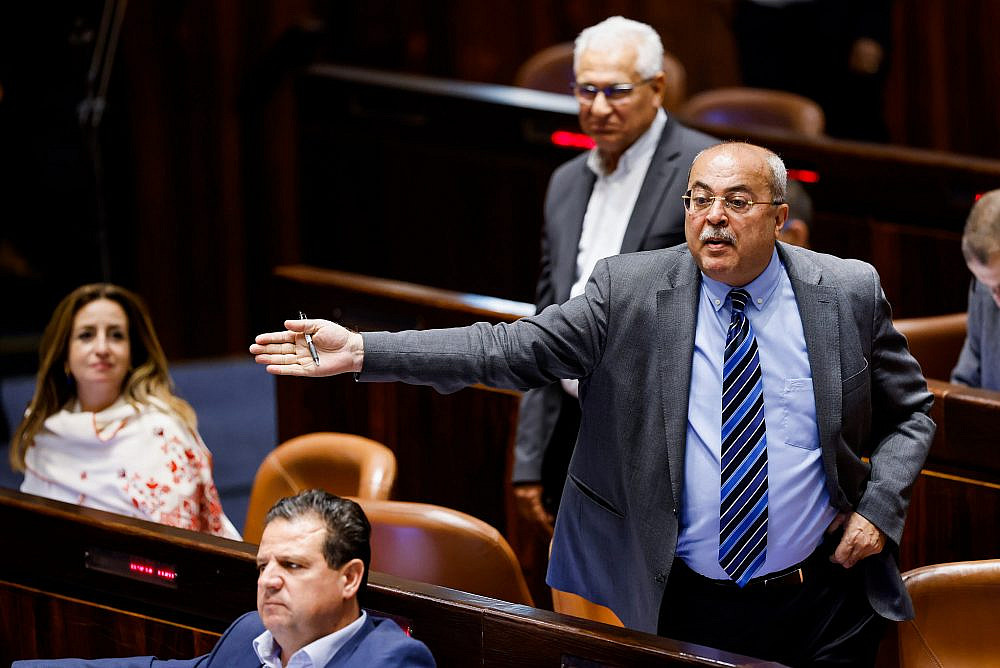On Jan. 2, immediately after the inauguration of the Netanyahu-Smotrich-Ben Gvir government, Likud MK Ofir Katz proposed a new law called “Basic Law: The Knesset (Amendment – Expanding the Grounds for Preventing Participation in Elections).” The stated goal, as it appears in the text of the law and as became clear in the explanation accompanying it, is to expand the scope of the justifications cited for disqualifying the participation of Arab parties and Arab candidates in elections to the Knesset.
Today, Section 7A of “Basic Law: The Knesset” contains three grounds for disqualifying a party or a candidate from running: if the party or candidate rejects the “Jewish and democratic” character of the state; if the party or candidate supports armed struggle by an enemy state or a terrorist organization against the State of Israel (the “supporting terror” justification); or if the party or candidate has incited to racism.
The first two reasons have, over time, been cited in attempts to disqualify the candidacy of representatives of Arab citizens in Knesset elections. In every election since 2003 — when Balad ran for the first time as an independent party — there has been talk of disqualifying the party on the grounds that its platform calls for “a state of all its citizens” and thereby rejects the “Jewish and democratic” character of the State of Israel. The rationale behind this claim is that enshrined equality between the two national groups — the Jewish majority and the Arab minority — would mean Israel ceasing to be a “Jewish state.” In 2003, the Supreme Court decided that the plank in Balad’s political platform calling for “a state of all its citizens” doesn’t amount to a “rejection of the ‘Jewish and democratic’ character of the state,” so the Court canceled the attempt to disqualify the party from running and allowed its candidacy to go forward.
The “supporting terror” justification is also used to disqualify Arab parties and candidates. Here, too, in almost every election since 2003, requests to disqualify Arab parties and candidates have been filed — relying on flimsy and superficial evidence that allegedly proves their “support for terror.” Although the Knesset’s Central Elections Committee, in a preordained political ceremony, routinely disqualifies Arab parties and candidates, the Supreme Court regularly overturns its decisions and allows Balad to run.
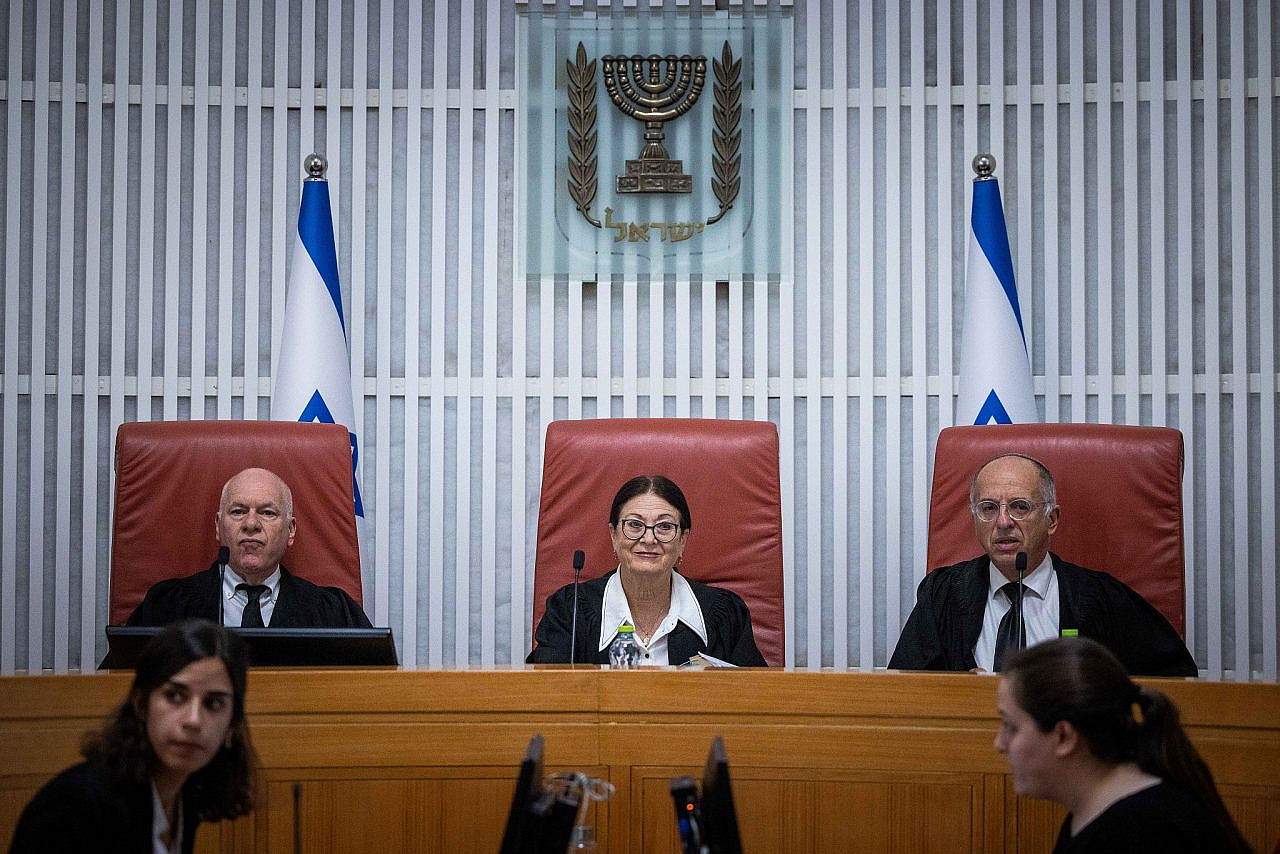
Removing the barriers to disqualification
At the same time, in the last few years, the Supreme Court has rejected potential candidates from Otzma Yehudit — Ben-Zion (Benzi) Gopstein, Baruch Marzel, and Michael Ben-Ari — on the grounds that they violated the third ground for disqualification — incitement to racism — after they had been proven to have continually and intensively incited against the Palestinian public, incitement that nearly reached the threshold of criminality.
Against the backdrop of these recent disqualifications, Otzma Yehudit secured the inclusion of Section 131 in its coalition agreement with the Likud late last year, which reads: “The government will work to amend Section 7A of Basic Law: Knesset so that the goal of the law will be actualized — to enable the disqualification of candidates who reject Israel as a Jewish and democratic state, or who incite to racism or support terror, and a situation will not arise in which the public faces discrimination whereby only one side is disqualified and supporters of terror are not disqualified.”
The Basic Law proposed by Katz, the Likud MK, essentially implements Section 131. It expands the legal grounds for preventing participation in elections in such a way that will only affect Arab parties.
Firstly, the “supporting terror” justification will expand so as to include not only support for an armed struggle by an enemy state or a terrorist group, but also support for armed struggle by an individual, regardless of whether that person identifies with any organization or not. I will return later to this expansion and outline its consequences. Secondly, it proposes that a one-time expression of sympathy with or support for armed struggle could be considered “support for terror.” That is, a single expression of sympathy will be sufficient to qualify as “support for terror.”
Thirdly, according to the current legal situation, if multiple parties run in an election as a joint list, no single constituent party can be disqualified — for any of the stipulated grounds. In such a case, the party accused of wrongdoing is eligible because the only way to disqualify it would be to find evidence that would implicate all the parties in the list as a collective. However, according to Katz’s proposed Basic Law, this provision would change so that a party could be disqualified even if it is running as part of a joint list. Finally, the proposal would remove the Supreme Court as the approving body for disqualifying parties (after the disqualification decision of the Central Elections Committee); instead, the proposal states that the Supreme Court will act only as a court of appeals.
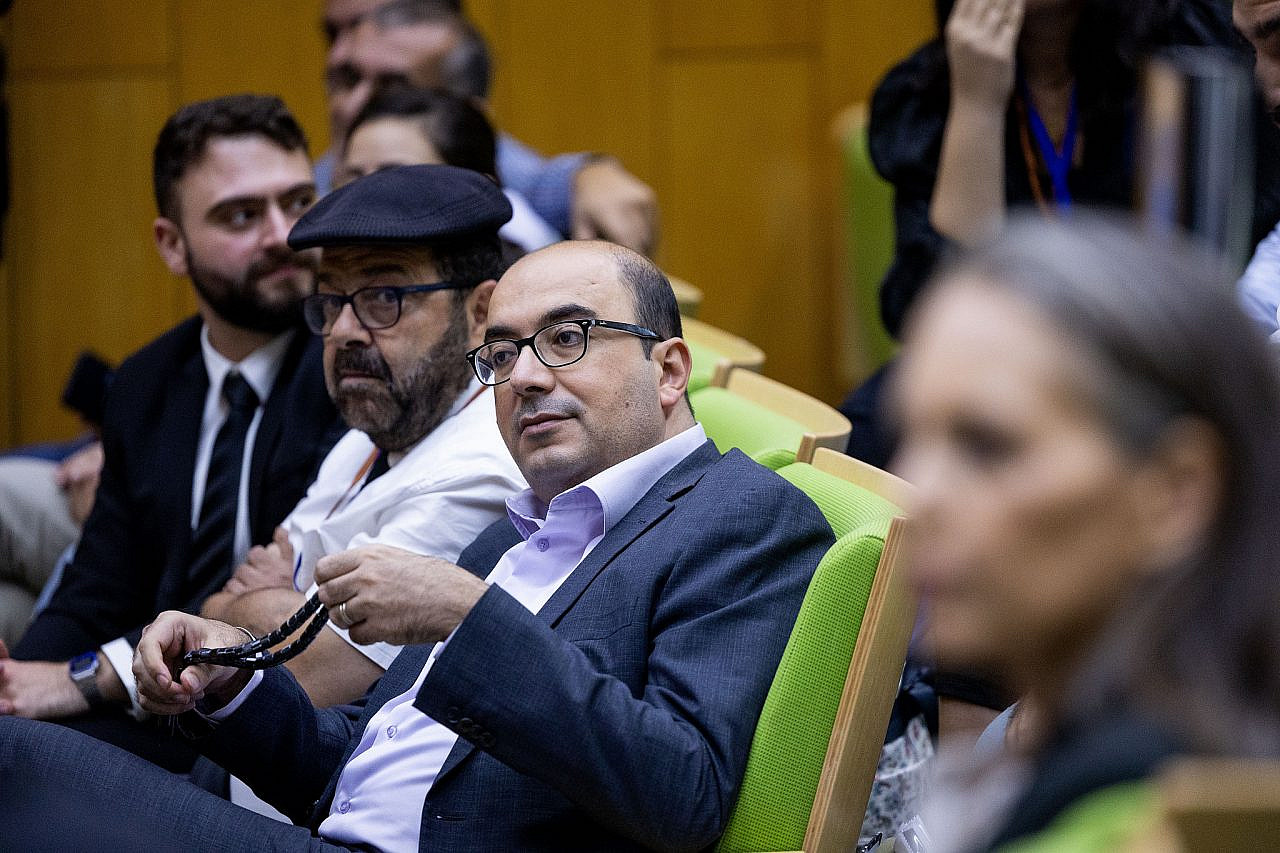
As a consequence of this proposed amendment, the Supreme Court will not be able to examine the evidence presented against a party or a candidate to determine whether they should be disqualified, but will only be able to examine the reasonableness of the Central Election Committee’s decision, and to intervene in situations it deems extremely unreasonable. In practice, the Supreme Court is not eager to apply the reasonableness standard against governing authorities like the Central Elections Committee. Additionally, if the reasonableness standard is abolished as part of the judicial overhaul, the Supreme Court’s ability to intervene in cases of candidate or party disqualification will be significantly reduced, perhaps even erased entirely. And so, if the proposed amendment to the Basic Law is adopted, it will be nearly impossible for the Supreme Court to reverse a decision by the Central Elections Committee. The result will be that the disqualification of Arab parties will stand.
Against a state of all its citizens
It would be natural to blame the current proposal, which seeks to entrench the anti-Palestinian bias of elections law, on the far-right government and its extremist and racist positions. The government is certainly playing a role in the process. But the earliest echoes of the proposal came about from the government prosecutor’s office — represented by the previous attorney general, Avichai Mandelblit — as part of the legal proceedings seeking to disqualify Arab parties running as a joint list.
In 2019, a joint list of Ra’am and Balad ran in the election for the 21stt Knesset. Likud submitted a disqualification request to the Central Election Committee, with evidence presented against Balad as an independent party, but nothing against the entirety of the joint Ra’am-Balad list. The evidence against Balad was focused on the proposal its representatives had brought during the 20th Knesset called “Basic Law: A State of All Its Citizens.” Balad representatives brought the proposal in response to the successful first vote on “Basic Law: Israel as the Nation-State of the Jewish People,” and represented an attempt to actualize the political ideas at the heart of Balad’s platform.
While the committee was deliberating the disqualification request, Mandelblit (through the state prosecutor’s office) was adamantly opposed to disqualification. The attorney general noted that since Balad was not running independently but rather on a joint list with Ra’am, with no evidence against the list as a whole, Balad could not be disqualified. Despite this legal opinion, the Knesset committee — as it almost always does — disqualified Balad. Balad appealed the decision to the Supreme Court.
The position Mandelblit submitted to the committee was supposed to be the same as the one he submitted to the Supreme Court. But, in a highly unusual move, this was not the case. The morning of the hearing date of the appeal before the Supreme Court, the attorney general submitted his position against the disqualification of the joint Ra’am-Balad list, but added a dramatic stipulation with claims that had not previously been brought against the joint list. According to Mandelblit’s opinion, if Balad were to run independently, without Ra’am, “there would have been room to consider its disqualification”; he further added that “because they are running on a single list, and because we can’t cancel ‘half a list,’ and because there are no charges against Ra’am … there is no room to disqualify the joint list [Ra’am-Balad].”
Mandelblit’s position was based on Balad’s proposed “Basic Law: A State of All Its Citizens,” as this was the first time since 2003 that the party sought to actualize its political platform in the form of Knesset legislation. From the perspective of the attorney general, this act bordered on rejection of the idea that Israel is a “Jewish and democratic state.”
However, since there was no evidence to justify disqualifying the joint list as a whole, the justices didn’t think it was proper to address the attorney general’s claim regarding the question of if Balad ran independently; they accepted Ra’am-Balad’s appeal, and allowed the joint slate to run in the 2019 election. At the same time, Justice Noam Solberg wrote in his decision that though Chief Justice Esther Hayut did not find room to belabor the issue, he himself thought that “there is a huge problem in our current legal system: when a party that allegedly could be disqualified on its own is able to join with another party, a joint list becomes a ‘sanctuary city.’ We should consider this issue, if and when there will be a need to grapple with a similar question in the future.”
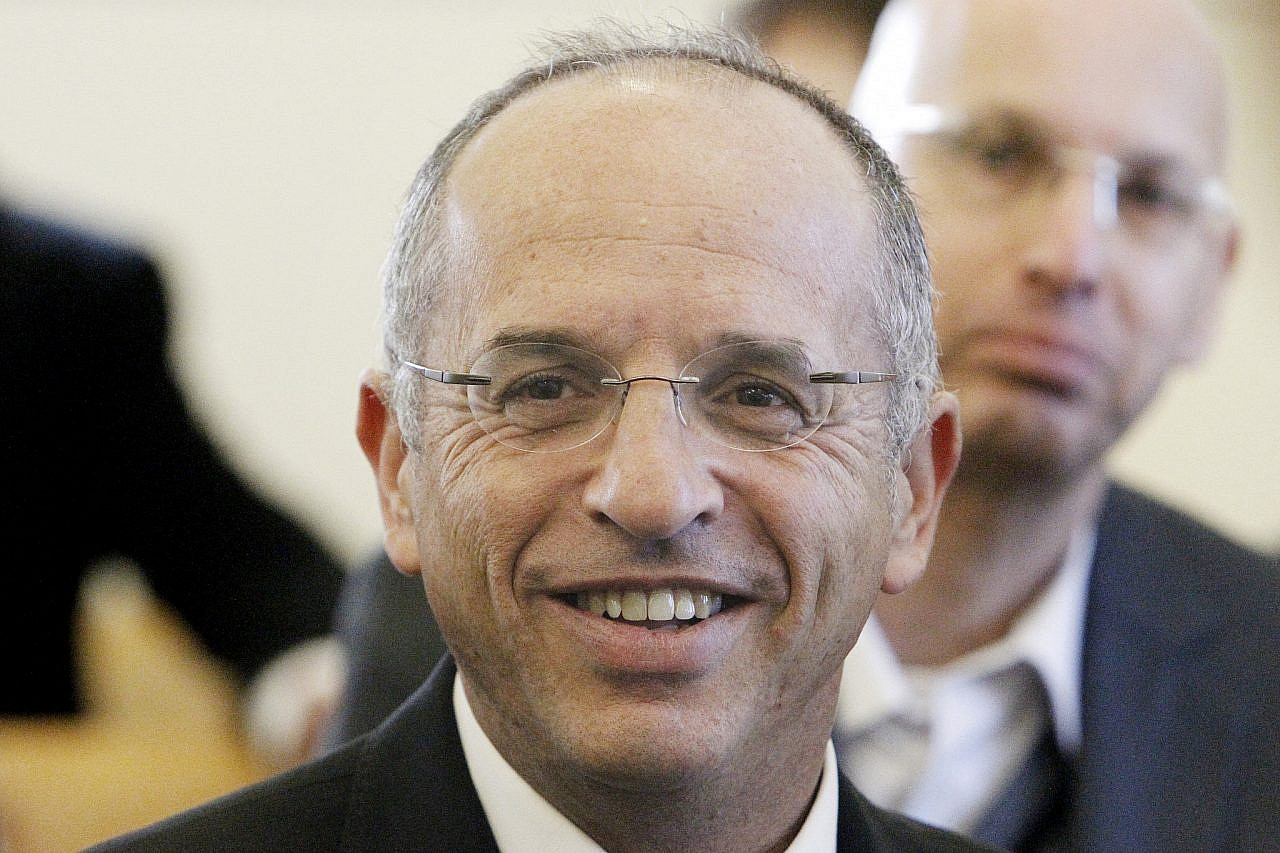
Demanding loyalty
Three years later, in 2022, Balad ran in the election for the 25th Knesset, this time as an independent party. Between the 2019 and 2022 elections, Balad representatives did not submit an additional proposed law calling for a “state of all its citizens.” But again a request to disqualify the party was submitted because it calls for a rejection of Israel’s “Jewish and democratic” character; again the Central Election Committee decided to accept the request; and again this decision was appealed to the Supreme Court.
On Oct. 9, 2022, the Supreme Court justices handed down their decision, including Justice Solberg, accepting Balad’s argument. They determined that because Balad did not submit another bill calling for a “state of all its citizens,” there was not sufficient evidence in the party’s platform alone to merit disqualifying Balad from participating in the election.
Here, too, it was apparently possible for Balad to comply with the criteria set by the ruling, but Justice Solberg, known for his conservative approach, added — yet again — something unusual: Balad, he wrote, should amend its platform to clearly express support for the existence of the State of Israel as a “Jewish state.” According to Solberg, since 2003, Balad has received compassionate treatment, because a “reasonable person” would conclude from its platform that it rejects the Jewish character of the State of Israel. Therefore, he continued, Balad actually functions in a dual manner: before the courts, it states that it does not reject the Jewish character of the state; and before the public it presents a political platform that calls for a “state of all its citizens.” In order not to mislead the courts or the “reasonable person,” Solberg ruled, Balad’s platform should be altered so it says explicitly that the party is not opposed to the Jewish character of the state. In so doing, Solberg not only intervened politically in the platform of a political party, but even demanded that it contain an explicit statement of loyalty — a commitment not to harm the Jewish character of the State of Israel.
Expanding what it means to ‘support terror’
I’ll return now, as promised, to the discussion of the “support for terror” justification, the scope of which will be widened significantly if the proposed law passes. In the past, the Supreme Court has set narrow criteria to determine whether a party or candidate has offered “support for terror”: the Court must be convinced that there is an unequivocally clear critical mass of evidence pointing to continuous support for armed struggle against the State of Israel by a terrorist organization or an enemy state. According to this test, this support means playing an active role in, or providing material or political support for, terror.
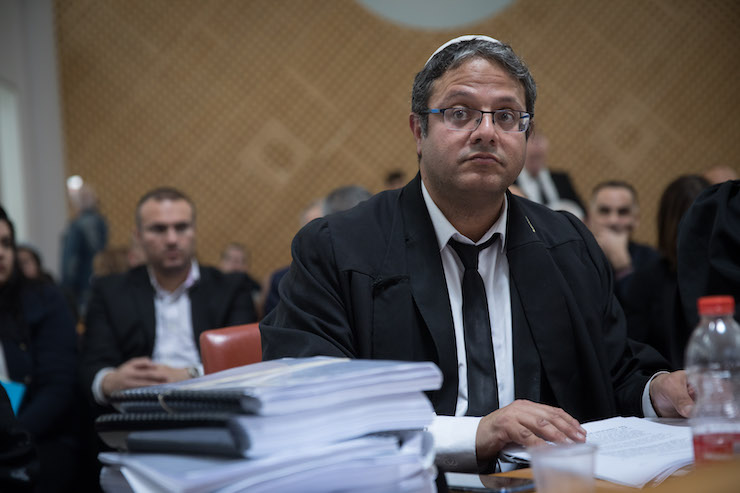
By contrast, according to the newly-proposed amendment to the Basic Law, these criteria will start applying not only to every instance in which there is support (direct or indirect) for the armed struggle of a terrorist organization or an enemy state, but also to situations in which an individual has committed a security offense without any connection to or membership of an organization. As a result, support for the struggle against occupation will lead to the disqualification of Arab candidates; defending basic human rights of political prisoners will lead to the disqualification of Arab candidates; and the participation of MKs in ceremonies welcoming prisoners after their release will cause them to fall under the scope of this rule, despite the fact that these ceremonies are designed to support the rehabilitation and reintegration of the prisoners into normal life after their release. The gap between these actions and “support for terror” is, apparently, nonexistent.
Advancing apartheid
The fundamental motivation for the proposed law is not just to decrease the number of Arab representatives in the Knesset, but to eliminate that representation altogether. The political participation of Arab citizens of Israel in the Knesset is contingent on unequal grounds for disqualification and is founded on a constitutional framework that requires them to abstain from all activity that could be interpreted as rejection of the Jewish character of the State of Israel, which has already led to statements from various bodies — such as the international human rights organizations Amnesty International and Human Rights Watch — that in Israel there exists a regime of apartheid against Palestinians on both sides of the Green Line. In the reports these groups have published in the last two years, the constitutional limitations on the participation of Arab parties in the Knesset is deemed part of a broader regime of racial and systematic segregation.
Most read on +972
There are those who argue that the very existence of the debate over Arab participation in the Knesset disproves that there is an apartheid regime against Palestinians within the Green Line. An apartheid regime, a regime of racial segregation, cannot exist, the argument goes, when the discriminated group can exercise their constitutional right to vote and get elected, thereby enabling the minority population to secure their other fundamental rights and freedoms.
Those making such an argument will point to the rulings of the Supreme Court, which for years have reversed the decisions of the Central Elections Committee disqualifying Arab parties and permitting their participation in elections. In the event that the proposed bill passes, however, there will be no more tools that can be used to defend against accusations of apartheid on both sides of the Green Line. If passed, the proposed Basic Law will cause serious damage to the representation of Arab citizens in the Knesset; however, it will bolster the argument that an apartheid regime reigns between the river and the sea.
This article was originally published in Hebrew on Telem. Read it here.

